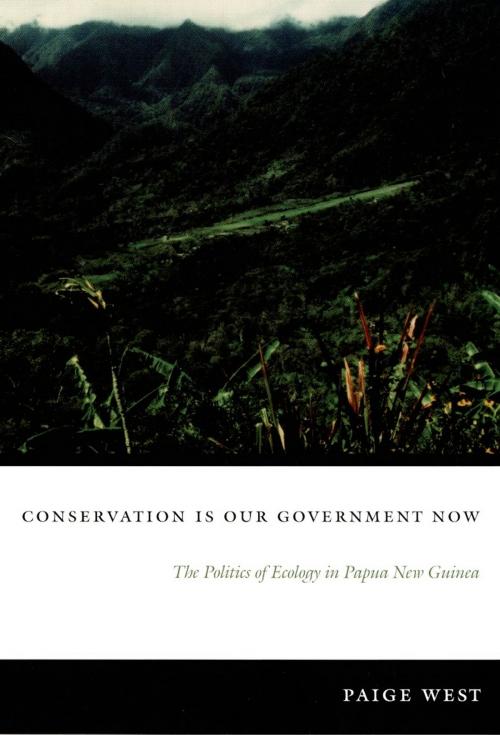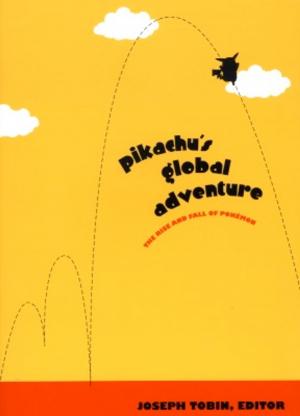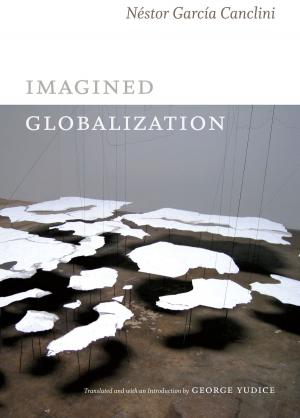Conservation Is Our Government Now
The Politics of Ecology in Papua New Guinea
Business & Finance, Economics, Sustainable Development, Nonfiction, Social & Cultural Studies, Political Science, Politics, Economic Policy| Author: | Paige West, Arturo Escobar, Dianne Rocheleau | ISBN: | 9780822388067 |
| Publisher: | Duke University Press | Publication: | May 31, 2006 |
| Imprint: | Duke University Press Books | Language: | English |
| Author: | Paige West, Arturo Escobar, Dianne Rocheleau |
| ISBN: | 9780822388067 |
| Publisher: | Duke University Press |
| Publication: | May 31, 2006 |
| Imprint: | Duke University Press Books |
| Language: | English |
A significant contribution to political ecology, Conservation Is Our Government Now is an ethnographic examination of the history and social effects of conservation and development efforts in Papua New Guinea. Drawing on extensive fieldwork conducted over a period of seven years, Paige West focuses on the Crater Mountain Wildlife Management Area, the site of a biodiversity conservation project implemented between 1994 and 1999. She describes the interactions between those who ran the program—mostly ngo workers—and the Gimi people who live in the forests surrounding Crater Mountain. West shows that throughout the project there was a profound disconnect between the goals of the two groups. The ngo workers thought that they would encourage conservation and cultivate development by teaching Gimi to value biodiversity as an economic resource. The villagers expected that in exchange for the land, labor, food, and friendship they offered the conservation workers, they would receive benefits, such as medicine and technology. In the end, the divergent nature of each group’s expectations led to disappointment for both.
West reveals how every aspect of the Crater Mountain Wildlife Management Area—including ideas of space, place, environment, and society—was socially produced, created by changing configurations of ideas, actions, and material relations not only in Papua New Guinea but also in other locations around the world. Complicating many of the assumptions about nature, culture, and development underlying contemporary conservation efforts, Conservation Is Our Government Now demonstrates the unique capacity of ethnography to illuminate the relationship between the global and the local, between transnational processes and individual lives.
A significant contribution to political ecology, Conservation Is Our Government Now is an ethnographic examination of the history and social effects of conservation and development efforts in Papua New Guinea. Drawing on extensive fieldwork conducted over a period of seven years, Paige West focuses on the Crater Mountain Wildlife Management Area, the site of a biodiversity conservation project implemented between 1994 and 1999. She describes the interactions between those who ran the program—mostly ngo workers—and the Gimi people who live in the forests surrounding Crater Mountain. West shows that throughout the project there was a profound disconnect between the goals of the two groups. The ngo workers thought that they would encourage conservation and cultivate development by teaching Gimi to value biodiversity as an economic resource. The villagers expected that in exchange for the land, labor, food, and friendship they offered the conservation workers, they would receive benefits, such as medicine and technology. In the end, the divergent nature of each group’s expectations led to disappointment for both.
West reveals how every aspect of the Crater Mountain Wildlife Management Area—including ideas of space, place, environment, and society—was socially produced, created by changing configurations of ideas, actions, and material relations not only in Papua New Guinea but also in other locations around the world. Complicating many of the assumptions about nature, culture, and development underlying contemporary conservation efforts, Conservation Is Our Government Now demonstrates the unique capacity of ethnography to illuminate the relationship between the global and the local, between transnational processes and individual lives.















